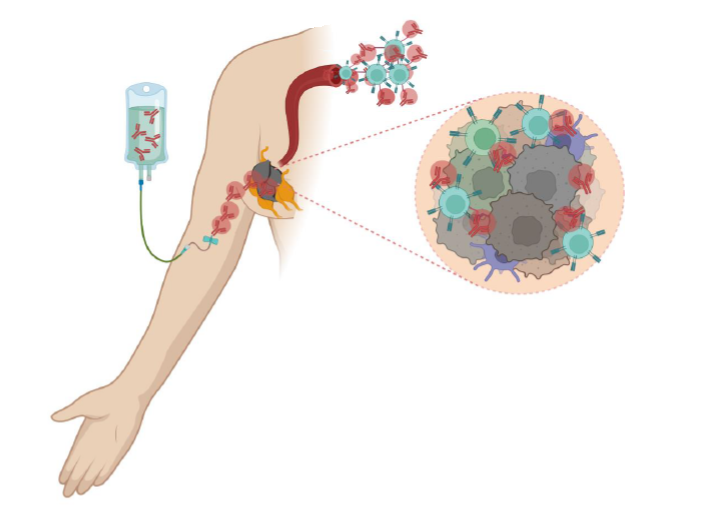In recent years, immunotherapy has emerged as a groundbreaking approach in the treatment of various cancers, including skin cancer. As the immune system’s role in combating malignancies becomes increasingly understood, researchers and clinicians are exploring innovative ways to harness and enhance immune responses against cancer cells. This article delves into the new trends in immunotherapy for skin cancer, highlighting recent advancements, challenges, and future directions.
Understanding Immunotherapy and Skin Cancer
Immunotherapy is a type of cancer treatment that utilizes the body’s immune system to identify and destroy cancer cells. Unlike traditional treatments such as chemotherapy and radiation, which directly target cancer cells, immunotherapy focuses on empowering the immune system to combat cancer more effectively.
Skin cancer, the most common form of cancer globally, primarily includes melanoma and non-melanoma types like basal cell carcinoma (BCC) and squamous cell carcinoma (SCC). While non-melanoma skin cancers are generally less aggressive and more treatable, melanoma is notorious for its potential to spread and become life-threatening. Immunotherapy has shown particular promise in treating melanoma, leading to significant improvements in patient outcomes.
Recent Advances in Immunotherapy for Skin Cancer
Checkpoint Inhibitors:
One of the most significant breakthroughs in immunotherapy for skin cancer is the development of checkpoint inhibitors. These drugs work by blocking proteins that prevent the immune system from attacking cancer cells. Key checkpoint inhibitors include pembrolizumab (Keytruda) and nivolumab (Opdivo), which target the PD-1/PD-L1 pathway, as well as ipilimumab (Yervoy), which targets CTLA-4. These inhibitors have been particularly effective in treating advanced melanoma, offering hope to patients who previously had limited options.
Combination Therapies:
Combining different immunotherapy agents or integrating immunotherapy with other treatment modalities has become a prominent trend. For instance, combining checkpoint inhibitors with targeted therapies or radiation can enhance the overall immune response against skin cancer. This approach aims to overcome resistance mechanisms that cancer cells might develop against single-agent therapies.
Personalized Immunotherapy:
As our understanding of the genetic and molecular landscape of skin cancer deepens, personalized immunotherapy is gaining traction. By analyzing individual tumor profiles, clinicians can tailor immunotherapy treatments to specific patients, improving efficacy and minimizing side effects. Techniques such as tumor-infiltrating lymphocyte (TIL) therapy, where immune cells are extracted from the patient’s tumor, expanded in the lab, and reintroduced into the patient, exemplify this personalized approach.
Oncolytic Virus Therapy:
Oncolytic viruses are engineered to selectively infect and kill cancer cells while stimulating an immune response. Talimogene laherparepvec (T-VEC), an oncolytic virus approved for melanoma treatment, has shown promising results. It not only directly lyses cancer cells but also releases tumor antigens, enhancing the immune system’s ability to recognize and attack remaining cancer cells.

Neoantigen Vaccines:
Neoantigens are unique proteins found on cancer cells due to mutations. Developing vaccines that target these neoantigens can help train the immune system to recognize and eliminate cancer cells. While still in experimental stages, neoantigen vaccines represent a promising avenue for enhancing the specificity and effectiveness of immunotherapy in skin cancer.
Challenges and Considerations
Despite the exciting advancements in immunotherapy for skin cancer, several challenges remain. One major issue is the variability in patient responses. Not all patients benefit equally from immunotherapy, and understanding the factors that influence response is crucial for optimizing treatment strategies.
Moreover, immunotherapy can lead to immune-related adverse events (irAEs), as the activated immune system may attack healthy tissues. Managing these side effects requires careful monitoring and may necessitate immunosuppressive treatments, which can dampen the anti-cancer immune response.
The cost of immunotherapy is another significant consideration. These treatments are often expensive, posing financial challenges for patients and healthcare systems. Efforts to make immunotherapy more accessible and affordable are essential for its widespread adoption.
Future Directions
The future of immunotherapy for skin cancer is promising, with ongoing research aimed at addressing current limitations and expanding its applicability. Some potential future directions include:
Biomarker Development:
Identifying reliable biomarkers that predict response to immunotherapy is a key focus. Biomarkers could help select patients who are most likely to benefit from treatment, improving outcomes and reducing unnecessary exposure to potential side effects.
Enhanced Delivery Systems:
Innovative delivery systems, such as nanoparticles or microneedles, are being explored to improve the targeting and efficacy of immunotherapy agents. These systems could enhance drug delivery to tumors while minimizing systemic exposure and side effects.
Microbiome Manipulation:
Emerging evidence suggests that the gut microbiome can influence the effectiveness of immunotherapy. Modulating the microbiome through diet, probiotics, or fecal transplants may enhance treatment responses and represent a novel adjunct to immunotherapy.
Gene Editing Technologies:
Advances in gene editing, such as CRISPR-Cas9, offer the potential to modify immune cells or cancer cells themselves to enhance immunotherapy efficacy. These technologies could be used to engineer immune cells with improved cancer-fighting capabilities or to disrupt immune evasion mechanisms in tumors.
Conclusion
Immunotherapy has revolutionized the treatment landscape for skin cancer, offering new hope to patients with advanced disease. The recent trends in immunotherapy, from checkpoint inhibitors to personalized approaches, highlight the dynamic nature of this field. While challenges remain, ongoing research and innovation promise to further refine and expand the role of immunotherapy in skin cancer treatment. As our understanding of the immune system and cancer biology continues to evolve, immunotherapy is poised to remain at the forefront of oncological advances, transforming the way we approach skin cancer and improving patient outcomes worldwide.









